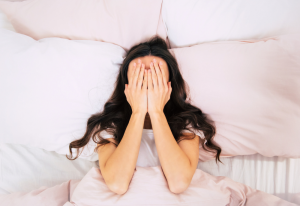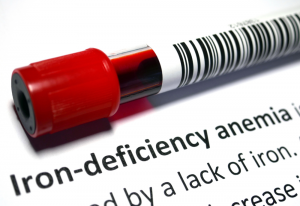5 Causes of Panic Attacks You May Not Know About
Panic attacks are a common and often debilitating form of anxiety triggered by a variety of different factors. While some triggers, such as stress and health concerns, are well known, there are a number of lesser known triggers which are actually quite prevalent. Here are five triggers of panic attacks you may not be aware of.
#1 Hormonal changes

Hormonal changes can increase the risk of panic attacks. This includes those that occur across the menstrual cycle as well as during pregnancy or menopause. For some women in particular, increased estrogen levels can slow the clearance of stress chemicals like adrenaline. Hormones like estrogen, progesterone and testosterone also influence the production and effectiveness of different brain chemicals. As a result changes in these sex hormone levels can alter brain chemicals and increase suceptibility to panic attacks.
#2 Lack of sleep

Lack of sleep or disrupted sleep patterns can be a major trigger for panic attacks. When we don't get enough sleep this interferes with our ability to control our emotional reactions. One reason for this is that this lack of sleep impairs higher brain functions such as rational thinking and self-awareness, which usually help us regulate our emotional responses. In this way poor sleep lowers our normal threshold for switching into fight or flight mode and makes our bodies and minds are more susceptible to anxiety.
#3 Medications and Supplements
 Some medications, including antidepressants and blood pressure medications have side effects that include anxiety and panic attacks. If you experience panic attacks more frequently after starting a new medication, it's important to investigate further. Even if you take natural supplements, anything that contains caffeine, or other stimulating nutrients or herbs, can exacerbate anxiety. This is also why it's best not to self-prescribe and rather get a personalised prescription from a health practitioner who can discern which supplements are suited to you.
Some medications, including antidepressants and blood pressure medications have side effects that include anxiety and panic attacks. If you experience panic attacks more frequently after starting a new medication, it's important to investigate further. Even if you take natural supplements, anything that contains caffeine, or other stimulating nutrients or herbs, can exacerbate anxiety. This is also why it's best not to self-prescribe and rather get a personalised prescription from a health practitioner who can discern which supplements are suited to you.
#4 Nutrient deficiencies
 Certain nutrients help us to make calming brain chemicals, as well as influencing our stress levels and mood. Because of this, deficiencies in key nutrients such as iron, zinc, B vitamins and magnesium, can contribute to feelings of anxiety and panic. Checking blood levels of important nutrients and ensuring that you are getting enough nutrition through diet and supplements can help to prevent this.
Certain nutrients help us to make calming brain chemicals, as well as influencing our stress levels and mood. Because of this, deficiencies in key nutrients such as iron, zinc, B vitamins and magnesium, can contribute to feelings of anxiety and panic. Checking blood levels of important nutrients and ensuring that you are getting enough nutrition through diet and supplements can help to prevent this.
#5 Social isolation
 While social situations can sometimes be a trigger for panic attacks, feeling isolated from other people can also be a factor. People who feel isolated and disconnected from others tend to feel more vulnerable and lacking in support. These people are therefore more prone to experiencing heightened stress and anxiety.
While social situations can sometimes be a trigger for panic attacks, feeling isolated from other people can also be a factor. People who feel isolated and disconnected from others tend to feel more vulnerable and lacking in support. These people are therefore more prone to experiencing heightened stress and anxiety.
How to Get Help
If you are having panic attacks and would like to know what is causing them and how you can feel better you can book a FREE introductory consult at Brain Body Well. By identifying and addressing the underlying triggers, we can always reduce the frequency and intensity of panic attacks and live a better life!















